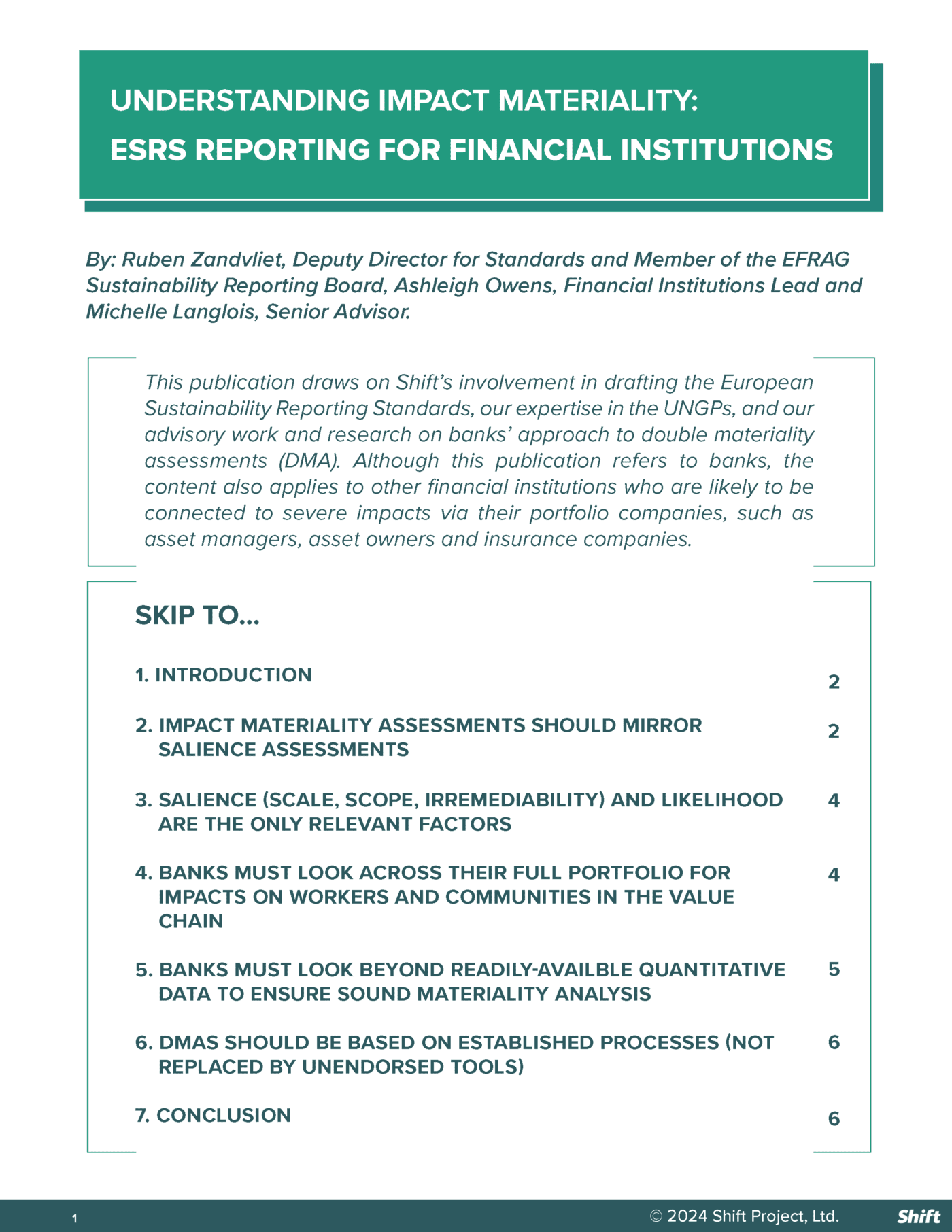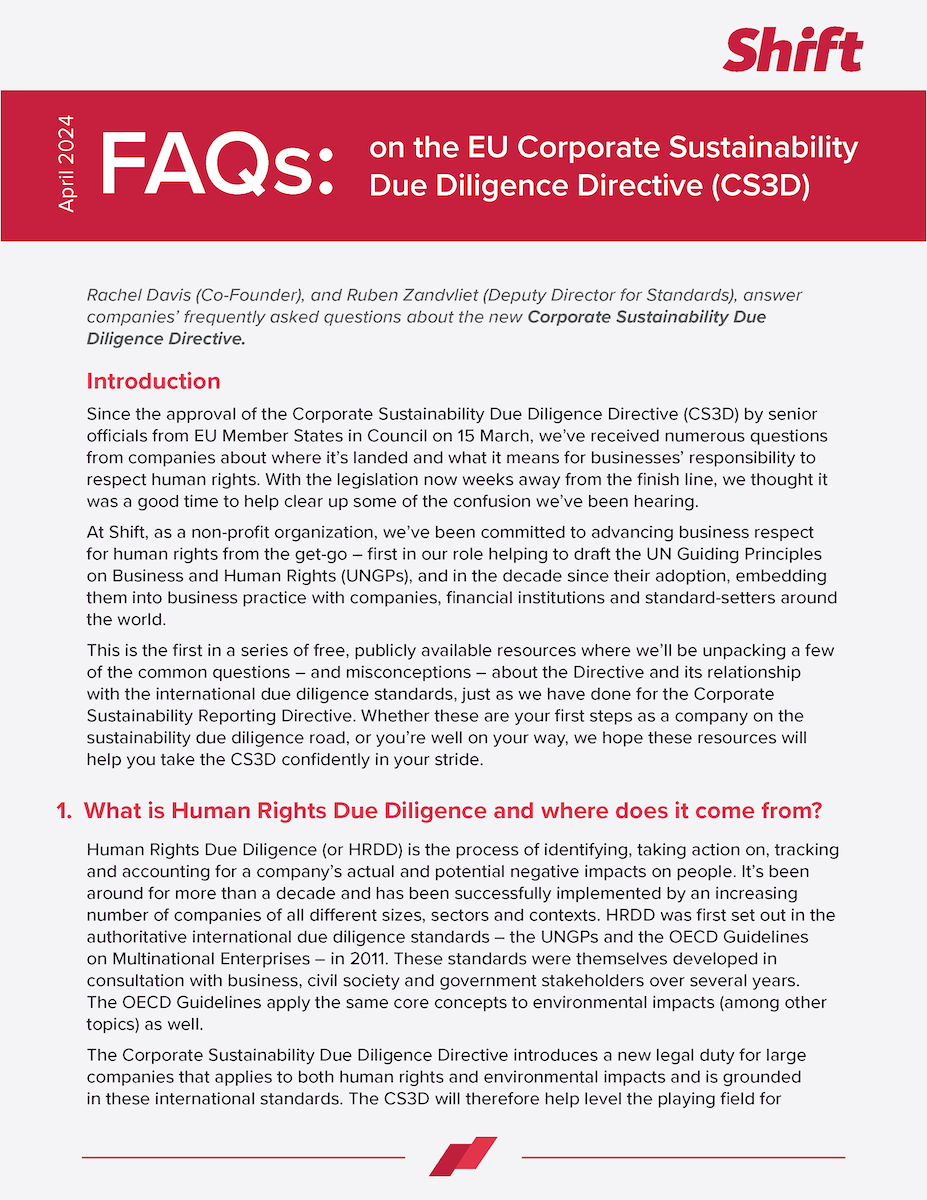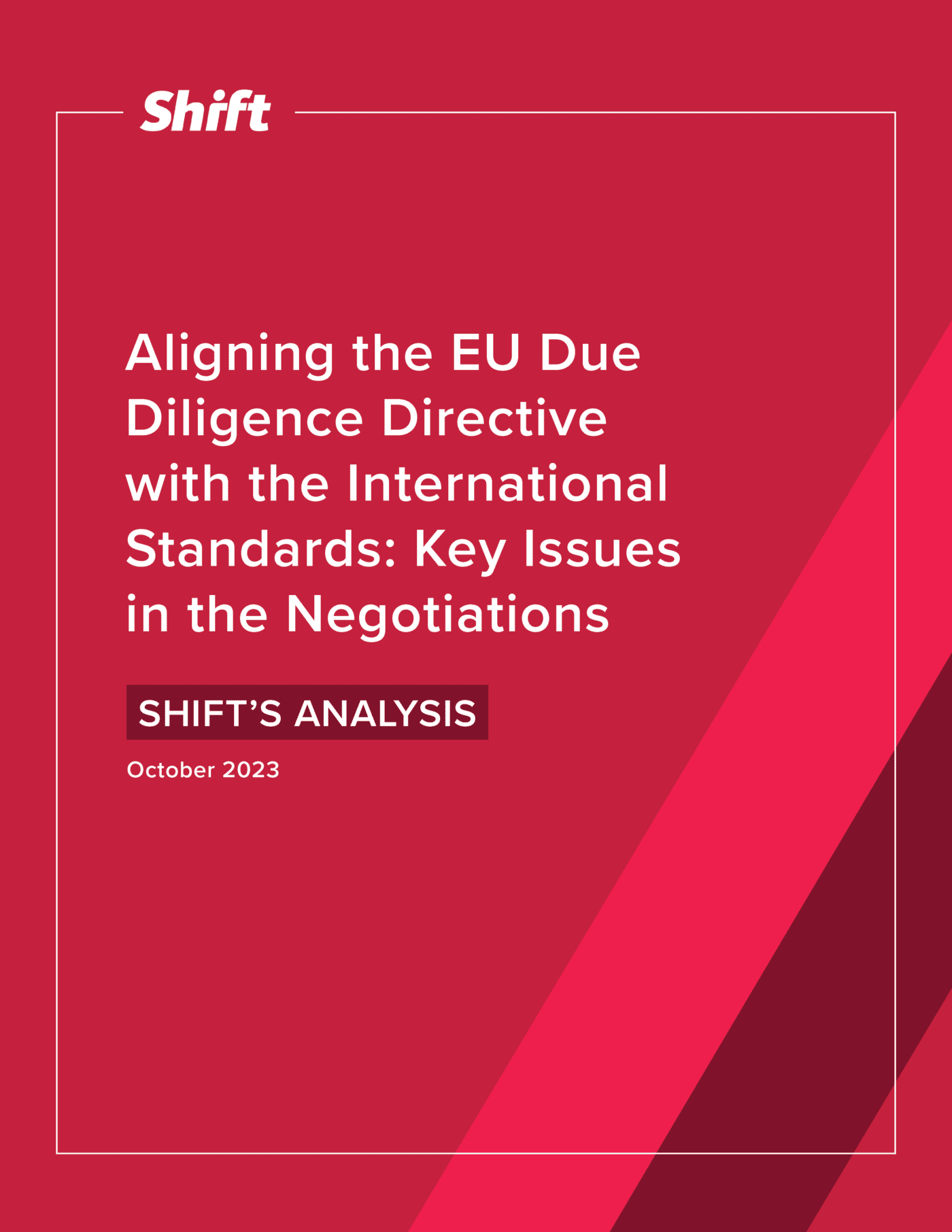New York, NY
Shift – the leading center of expertise on the UN Guiding Principles on Business and Human Rights – welcomes the report published this week by EFRAG following the mandate from the European Commission, that sets out recommendations for European sustainability reporting standards. The report contains a range of critical recommendations for the work of a future standard-setter for EU-mandated sustainability reporting:
- First, it highlights the principles and the process for implementing ‘double materiality’ to determine what information a company should report: both information about the company’s most significant impacts on people and the environment (impact materiality); and information about sustainability matters that affect the company’s ability to create value (financial materiality). The Task Force recognizes from past experience that companies need clear guidance on implementing double materiality, so they report fully on their material impacts, and not only on those that are also financially material.
- Second, the report proposes a welcome shift away from a vague category of ‘social’ information to an approach that starts with the stakeholders most at risk (“affected stakeholders“) and then looks at how the company’s business may affect them – for instance through health and safety, forced labor practices or loss of access to clean water. This gives companies a clear way to prioritize the issues they need to report on, in line with international standards.
- Third, the recommendations highlight the need for indicators and metrics that offer genuine insight to the users of reporting (“characteristics of information quality”). Too few of the typical ‘social’ indicators do so today. The report underlines the need for all indicators to be assessed against some key criteria to avoid perverse consequences and false conclusions. And it emphasizes the value of companies setting and reporting against good quality, outcome-oriented targets that reflect the change they intend to make and enable them to measure and disclose progress.
David Vermijs, who co-chaired the Task Force’s workstream on conceptual guidelines, commented, “These are critical recommendations that need to be front and center in the work of the future EU standard-setter. They set the foundation for ensuring that sustainability reporting both helps companies focus on what matters most when it comes to their sustainability performance, and enables their stakeholders to get a true picture of how well they are progressing.”
Shift notes that some of the Task Force’s recommendations will benefit from continuing consultation, including how the new standard-setter can support and accelerate greater ambition and convergence in reporting standards at the international level – including the integration of impact materiality and with regards to “reporting areas” – and the extent to which ‘intangibles’ can be brought within the framework of sustainability reporting.
“Perhaps most important at this point,” commented Caroline Rees, Shift’s President, “is the matter of the standard-setter’s future composition. While we welcome the separate report published on this issue, it leaves open some critical questions as to whether and how the new body will include the necessary deep expertise in the full range of sustainability issues, including and in particular regarding impacts on people. Getting this right will be key to the success of the whole endeavor.”
For media inquiries, please contact communications [at] shiftproject [dot] org.



